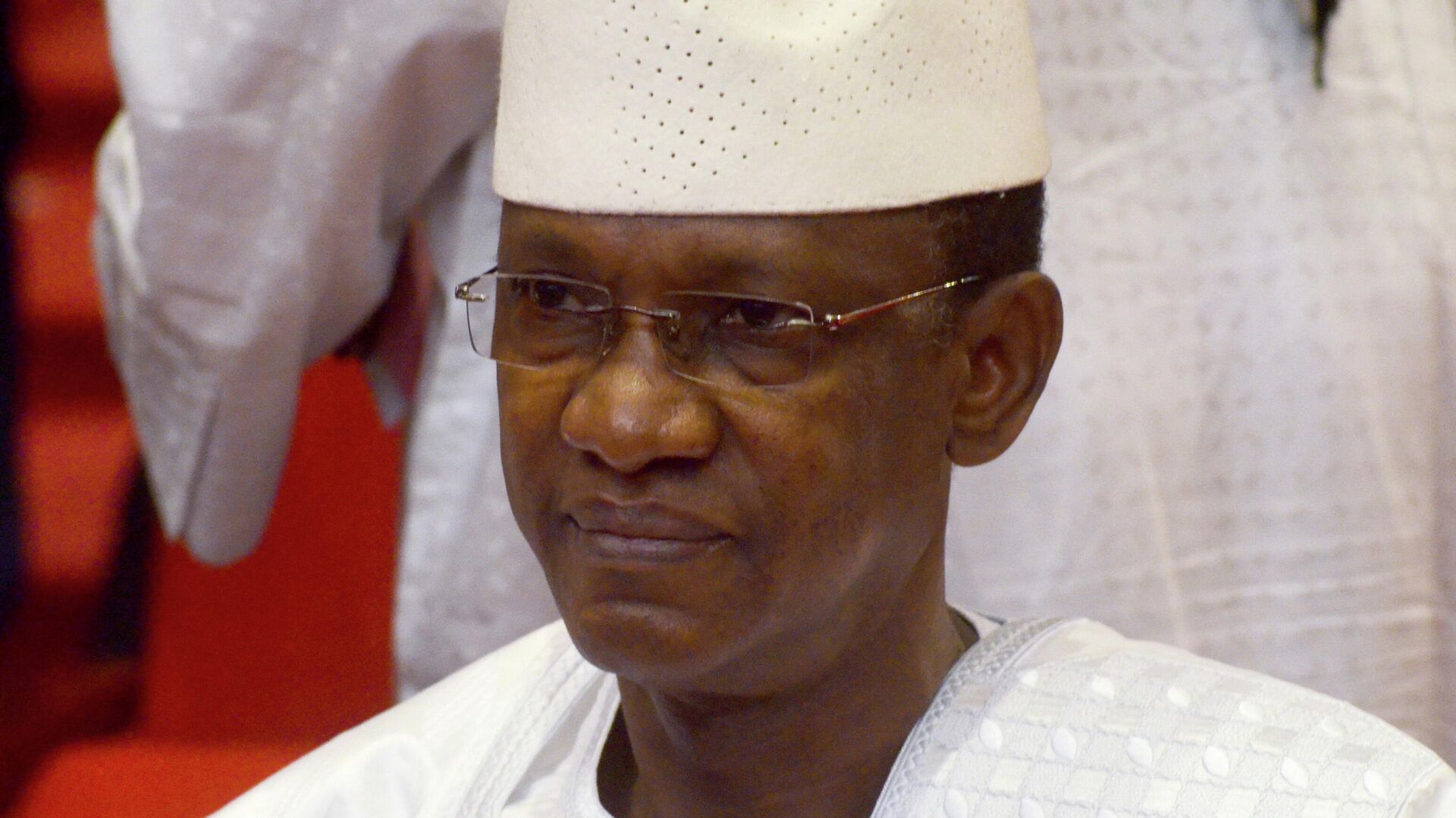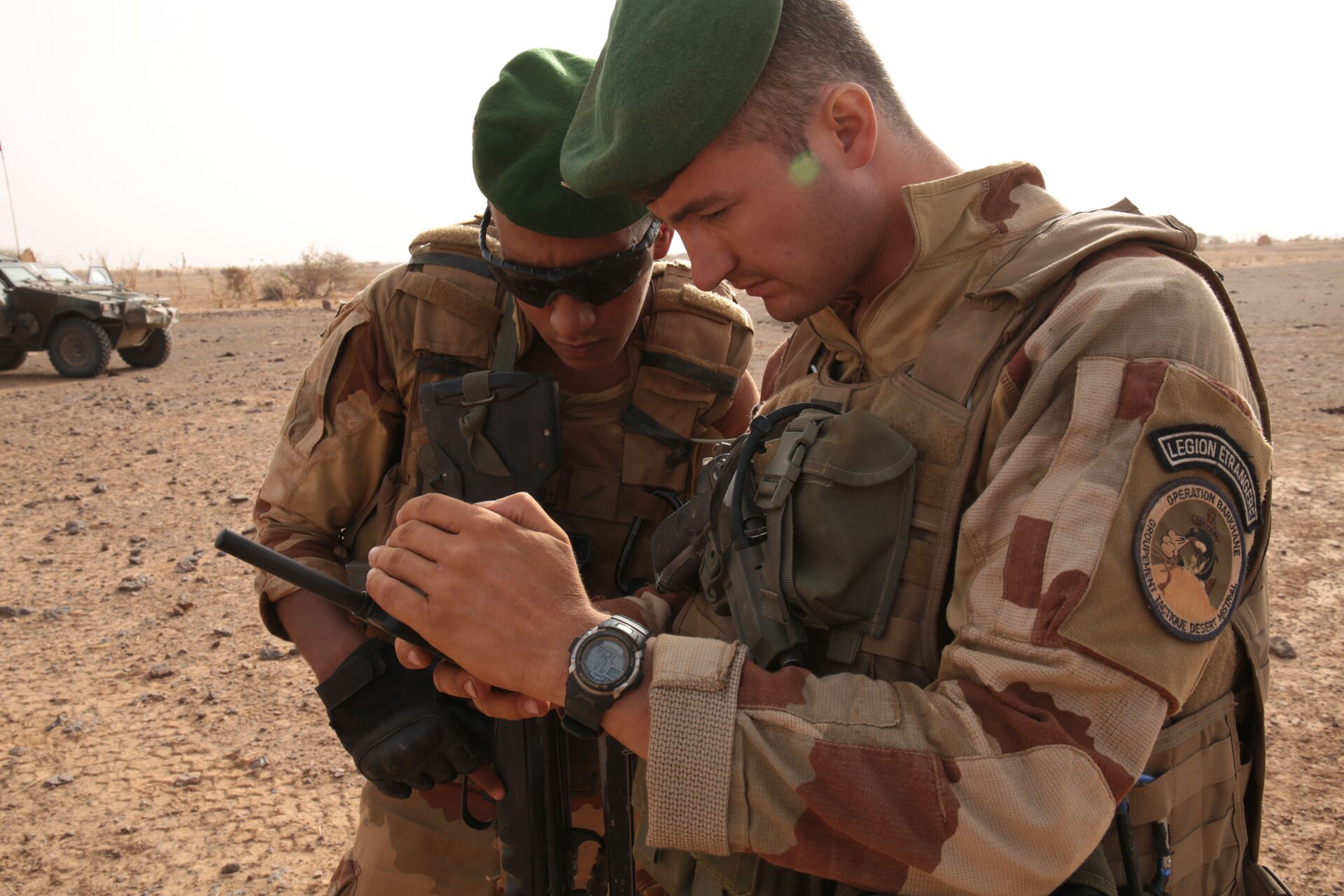Mali’s PM Accuses France of ‘De Facto Partition’; Says Operation Barkhane Helped Terrorists Regroup
20:00 GMT 08.02.2022 (Updated: 09:05 GMT 10.02.2023)

© REUTERS / AMADOU KEITA
Subscribe
Malian Prime Minister Choguel Kokalla Maïga has renewed his accusation that the French intervention in his country helped terrorist groups in the north to regroup, further deepening the row between Mali and its former colonial ruler.
Speaking to a group of diplomats in Bamako on Monday, Maiga doubled down on past accusations that the French intervention in Mali had caused more problems than it solved. However, he stopped short of demanding that Task Force Takuba, its latest iteration, depart from Mali.
"The intervention turned into a de-facto partition of Mali, which contributed to the sanctuarisation of our territories for the terrorists who had time to take refuge and reorganise themselves in order to come back in force," Maiga said.
"When the French judged that [the US presence] was no longer necessary, they told the Americans to go. Did the Americans start insulting the French?" Maiga asked, comparing the situation in Mali to that in France at the end of World War II.
"We cannot be turned into vassals," he added. "You cannot enslave the country. That is over."
The French intervention in Mali in 2013 was ultimately a consequence of the 2011 destruction of Libya by NATO. When Muammar Gaddafi’s government was overthrown by NATO-backed rebels, the power vacuum saw myriad rebel groups arise, including many who pledged their loyalty to *Daesh and *al-Qaeda. These groups proliferated in the Sahara region, spreading into neighboring Algeria, Niger and Mali, among other states. Some sympathetic groups among the Tuareg people in northern Mali declared an independent state of Azawagh.
As the war effort against the Tuareg rebels worsened, Malian soldiers blamed their inept civilian government and overthrew President Amadou Toumani Touré in 2012. However, the chaos of the coup only aided Tuareg expansion, and they soon controlled nearly half the country. Toure’s government appealed for international assistance, and France’s Operation Serval began in early 2013.
The following year, Serval expanded into the larger Operation Barkhane, which spanned across five Sahelian nations and was based in N'Djamena, Chad. In the seven years that followed, Barkhane developed a reputation similar to the US War on Terror as a kind of drone strike-driven “forever war” that had failed to destroy any of the terrorist groups it claimed to be fighting, but succeeded at killing numerous civilians.
A second military coup in August 2020, provoked by weeks of mass protests against the government of President Ibrahim Boubacar Keïta, created a provisional government with shared military-civilian power that set a target for new elections in February 2022. The third coup in May 2021 saw France refuse further cooperation with Bamako, and French President Emmanuel Macron soon announced the end of Operation Barkhane entirely, to be replaced with a smaller Task Force Takuba that would focus on the tri-state region between Mali, Niger and Burkina Faso.

In this photo taken Sunday, June 21, 2015, French soldiers look at their sat phone as they are on patrol in the desert south of the village of Deliman, Mali.
© AP Photo / Maeva Bambuck
Since then, the rift between Bamako and Paris has only deepened, especially after news broke that the government of Interim President Assimi Goita had begun looking for other partners to fill the gap left by the French departure, including Russia - a notion that enjoys some popular support in Mali.
Speaking to RIA Novosti in October 2021, Maiga accused Paris of creating an enclave where the terrorist groups could regroup.
"Those terrorists who are present in Mali came from Libya. And who destroyed the state of Libya? France, with its allies. When the Malian state went to cooperate with France on intervention in Mali to combat terrorism, we asked for help with intelligence and air support. No one talked about sending the military to the territory. France respected this agreement in Kona, Gao, Timbuktu. When they approached Kidal, they forbade the Malian military to enter there," he said.
“Mali does not have access to Kidal, it is an enclave controlled by France. They have armed groups that were trained by French officers. And we have evidence of this,” Maiga continued. “We have an expression that if you are looking for a needle in your room, but whoever is involved in the search for this needle is on it, then you will never find it. This is the situation that is currently in Mali and which we do not understand and do not want to put up with.”
Western governments have claimed that PMC Wagner is operating in Mali, which Bamako has denied. They have also accused PMC Wagner of being an arm of the Kremlin, which the Kremlin has denied. However, Russian Foreign Minister Sergey Lavrov did confirm last September that the two governments had discussed sending military advisers, but that nothing had come of those talks.
When Macron traveled to Moscow on Monday, the Russian president reiterated that point, saying that Mali has the right to contract with any private company it wishes, but that his government has no connection to it.
*Daesh (ISIS, ISIL, IS), al-Qaeda - terrorist groups banned in Russia and many other countries.

